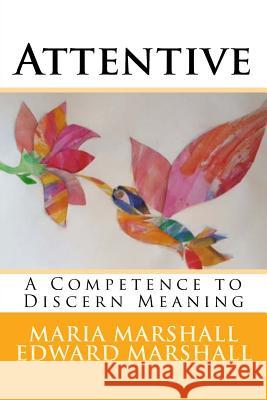Attentive: A Competence to Discern Meaning » książka
Attentive: A Competence to Discern Meaning
ISBN-13: 9781530615421 / Angielski / Miękka / 2016 / 160 str.
The present book is based on the work of Dr. Viktor Emil Frankl (1905-1997), an Austrian neurologist and psychiatrist and the founder of the Third Viennese School of Psychotherapy, also known as Logotherapy and Existential Analysis. Central to the tenets of this orientation to psychotherapeutic practice is the recognition that the basic motivation in human life is the will to meaning. Frankl's Logotherapy rests on a three-dimensional, holistic view of the human person, including the dimensions of body, mind and spirit. The heuristic value of his anthropological views have profound philosophical and clinical implications. Frankl asserted that human beings have a free will, they have a will to meaning and that meaning is available to every person in every situation. Extensive literature covers the foundations and applications of Viktor Frankl's Logotherapy. Randomised controlled studies and other research have proven its efficacy in the alleviation of symptoms related to a sense of meaninglessness and helping individuals live with a greater sense of purpose in their lives. Unique to this book is a conceptualization of the discernment of meaning as a competence which could be systematically taught and learned by individuals and groups wishing to acquire further knowledge, skills, abilities and competencies in this area. Attentive Meaning Sensitivity is a competence to search for and find meaning in our everyday lives. It is manifested in the ability to scan our reality for meaning potentials and search for them in the areas where they may be found. Attentive Meaning Sensitivity can be present when a person (1) is willing to learn new things about themselves; (2) appreciates themselves as one of a kind and irreplaceable in the order of creation; (3) considers various possibilities available in each situation; (4) takes ownership for their actions and their consequences; (5) is able to observe themselves from the outside from various perspectives; and (6) reaches beyond the self toward goals implementing action steps or tasks. The above mentioned activities are concrete external manifestations of a person who has developed a capacity for Attentive Meaning Sensitivity. This competence is not an all or nothing ability. It can be experienced, exercised and practiced and thus developed. It is a capacity based on three fundamental principles: (1) the freedom of will; the (2) will to meaning and (3) meaning in life in every situation. This book provides a systematic review of the fundamental principles of Viktor Frankl's Logotherapy and Existential Analysis and presents six stepping stones through which the competence of Attentive Meaning Sensitivity can be learned and lived: (1) Self-Discovery; (2) Uniqueness; (3) Choices; (4) Responsibility and Response-ability; (5) Self-distancing; and (6) Self-transcendence. We relied on three sources for writing this resource guide: (1) knowledge, (2) lived experience and (3) practical applications of Viktor E. Frankl's Logotherapy in clinical practice. Both of us are registered psychotherapists with specialization in Logotherapy and Existential Analysis. Throughout the book we provide factual information and lived experience with examples from the life of Viktor Frankl as well as case examples adapted from our own life.
Zawartość książki może nie spełniać oczekiwań – reklamacje nie obejmują treści, która mogła nie być redakcyjnie ani merytorycznie opracowana.











